So you want to learn to fly a powered paraglider? we have the lowdown on what it takes to get airborne for all aspiring pilots of freedom and adventure
As pilots ourselves and having spent a large majority of our time flying, we can definitely vouch for the extreme fun you get surfing the clouds. This is a thrill that invades pilots of all levels & generations, often turning rather obsessive! It’s a rush that should exist from the first time you strap a Paramotor to your back… and it should never fade. Professional paramotor training is so important and makes all the difference. Who knows, you could meet a bunch of like-minded aviators who you end up hanging out and flying with for the rest of your life!
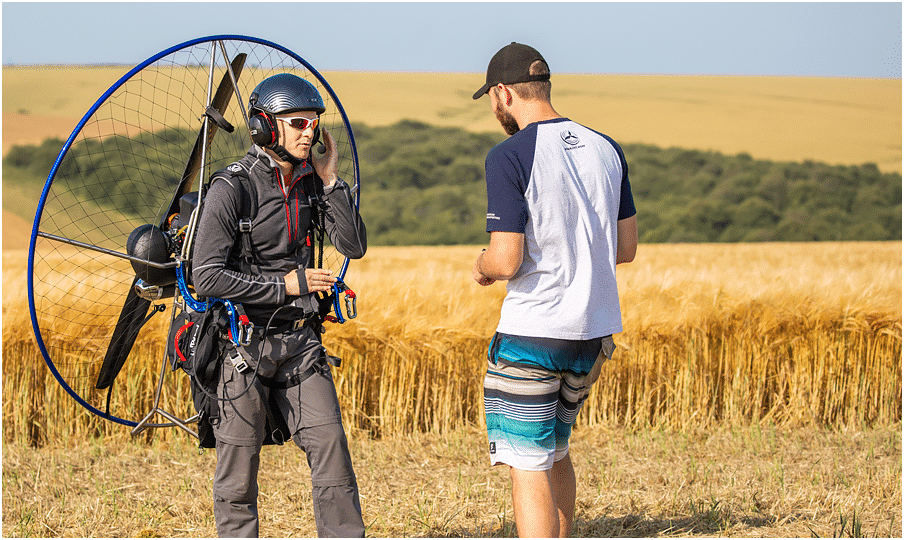

Yes! There are things in life of which you don’t want to take the short-cut budget version. Paramotor instruction is one of them. A highly qualified instructor will have a wealth of knowledge, techniques & experience not just in how to actually fly a paramotor but also in how to teach you the skills safely via a tried and tested syllabus. This just cannot be matched by a YouTube video or friend, who no-doubt has a bunch of bad and potentially unsafe habits, as well as no idea how to break it down, teach & analyse your flying. A good instructor will have endless patience, empathy, creative teaching techniques and will not give up on your desire to fly. Invest in professional training! There really is no substitute for tuition from a qualified instructor.
Paramotor courses come in a variety of formats. One size does not suit everyone and not all of us can take time away from work, family and other commitments. Find the right paramotor course that works for you.
Whilst it’s possible to learn to fly with a half-day every other weekend, a dedicated bootcamp-style course is a great way to speed up the learning process. This more immersive method of paramotor training ensures you remain fresh with what you have already learnt, is a great way to boost your confidence and allows you to spend a full week soaking up and absorbing all that is necessary to safely and confidently take to the skies unassisted.
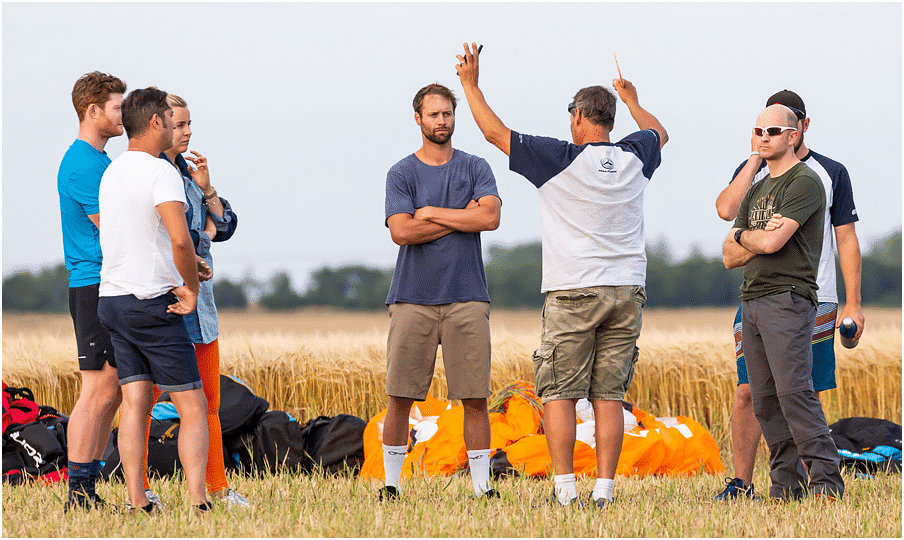
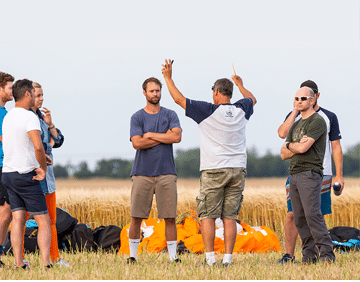
As with all things worth doing well, having the right paramotor instructor is crucial. A qualified instructor will demonstrate expertise and competence through use of an accredited syllabus involving a gradual progression of skills. The trained, eagle eyes of a good instructor will provide constructive feedback to build your confidence and proficiency while ensuring that your stoke levels are sky high at the end of each session. Your overall rate of learning will be much faster. A good instructor will also ensure you are learning on the optimum equipment for your level and that it is set up correctly & specifically for you. The right instructor will not only instil good technique and knowledge, but will be someone who you will be able to turn to for good advice regarding places to consider flying and the right equipment to buy for years to come.
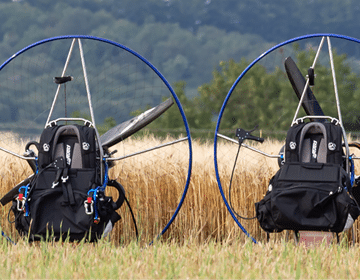
Learning to fly a Paramotor with our Parajet Accredited Paramotor Instructors and Training Schools will bring you great joy and a sense of personal achievement while discovering an exciting new adventure sport. Having a good time is the cornerstone to our success. Come and learn with us – you’ll be up in the air having a blast and creating a lifetime of awesome memories in no time!
To get the most out of your paramotor training and the time with your chosen instructor, it’s best to arrive prepared. The majority of Paramotor schools will provide all equipment and refreshments so just make sure you follow these tips to help make your paramotor training experience successful and enjoyable.

Check the forecast before you head to the field and be prepared. The right clothing for a warm or windy, chilly day can make all the difference.

Wear clothing which is comfortable and breathable. Layering helps you regulate your temperature and allows you to adapt to changing conditions.

Comfortable feet are key. The right footwear provides protection from debris, stability on uneven ground and reduces the chance of ankle rolls.

The training field is exposed and you can burn even if it's cloudy. Wearing SPF 30+ suncream and suitable sunglasses will help protect you from the sun.

Drink some water and eat something - training requires physical activity, you'll need energy. It’s worth having a bottle at hand when out on the field too.

Getting your gear together and walking across the field can take a little longer than you think. Be there with time to spare so you’re ready and waiting to crack on.

Helmets are designed to offer some degree of protection in case of impacts to the head and should be worn at all times during training.

Your instructor is just as excited to teach you to fly as you are to learn. Relax, open up and enjoy yourself. The best student is the one having the most fun!
Whether you decide to train with a paramotor instructor on a flexible session basis or opt for a paramotor bootcamp training course, you will follow these fundamental steps to take you from a complete beginner to a safe and confident paramotor pilot, with all the essential skills and knowledge needed to fly.
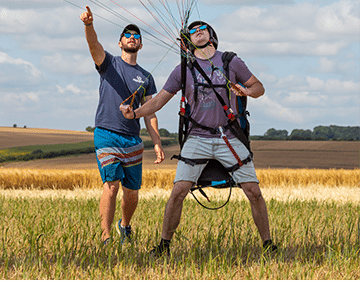
A fundamental skill of learning to fly a Paramotor is to master ground-handling, or the process of controlling the glider while keeping your feet securely on terra-firma. From inflating the glider in various wind conditions and holding it stable overhead to understanding its characteristics and ways to depower the wing, you’ll learn techniques and ways that will improve your launch success. Be prepared to get a great workout! You will be using muscles you didn’t even know you had, and each kiting session will leave you with a terrific sense of accomplishment. Once you have the basics down you’ll progress to short low-level airborne hops with a tow or hill launch, learning the correct control input responses to keep airborne and perform a safe landing.
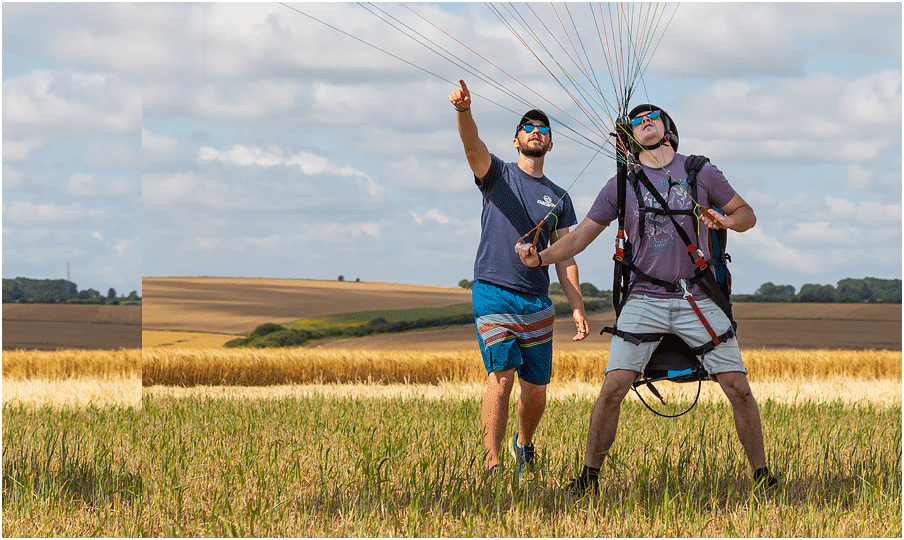
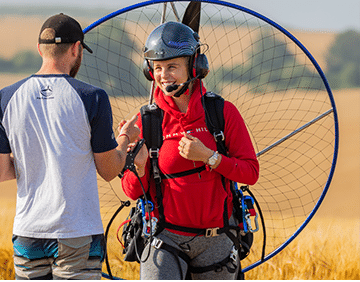
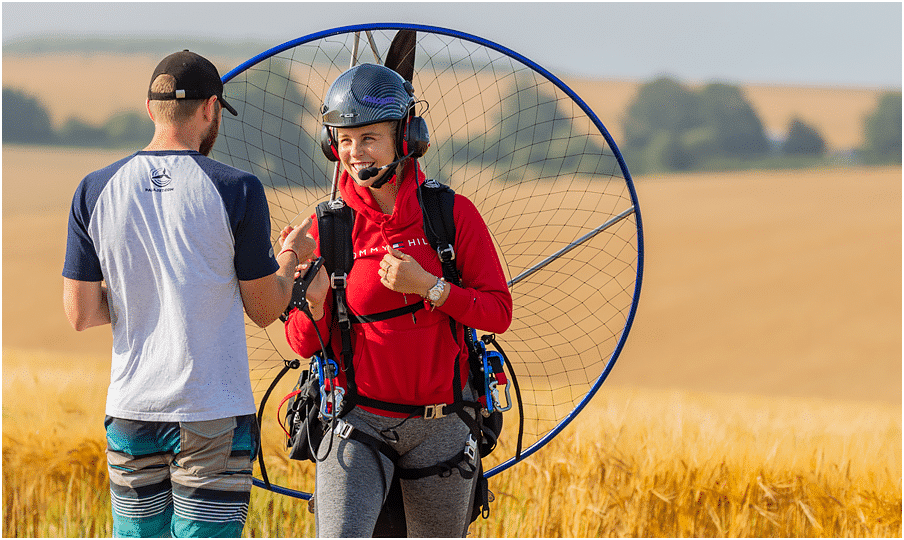
With your newly acquired kiting and flying skills, you are now ready to discover the true beauty of powered flight. Adding a Paramotor brings another element into the mix and there is another set of techniques and safety elements for you to master. You’ll make the various adjustments to configure the harness for your physique and optimum flight position before spending some time kiting and running launch sequences with the Paramotor in situ. You’ll soon adapt to the weight on your back and begin to practice the art of smoothly apply power at the right time, without inadvertently adding throttle at the wrong times. There will be a few minor technique changes introduced to compensate for the thrust of the motor.
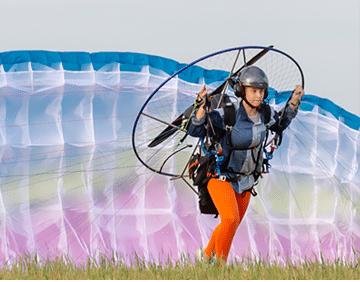
A convergence of skills learnt over the past few days and the right conditions finds you ready to take that first solo flight. You stand one leg forward with arms outstretched. Your instructor has three fingers outstretched; each digit ready to count you down to your first ever Paramotor launch. Only a short run and a controlled squeeze of the throttle are needed to gently pluck you off the ground and get you airborne. You will learn the dynamics of a turn and how to properly enter and exit one. The flight will end with a standard approach and your goal will be to land in the designated landing area. You can expect to complete a number of powered flights before the end of your training.
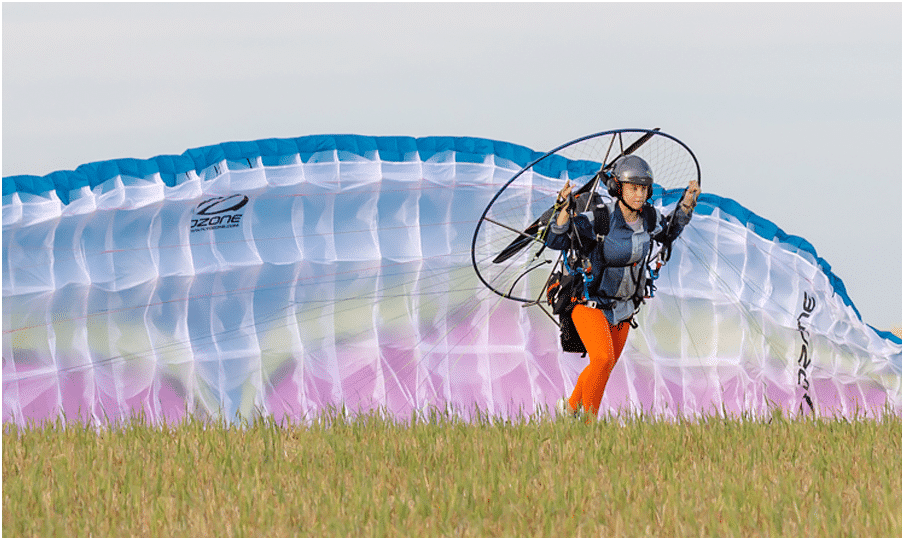
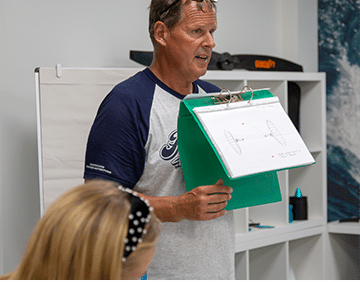
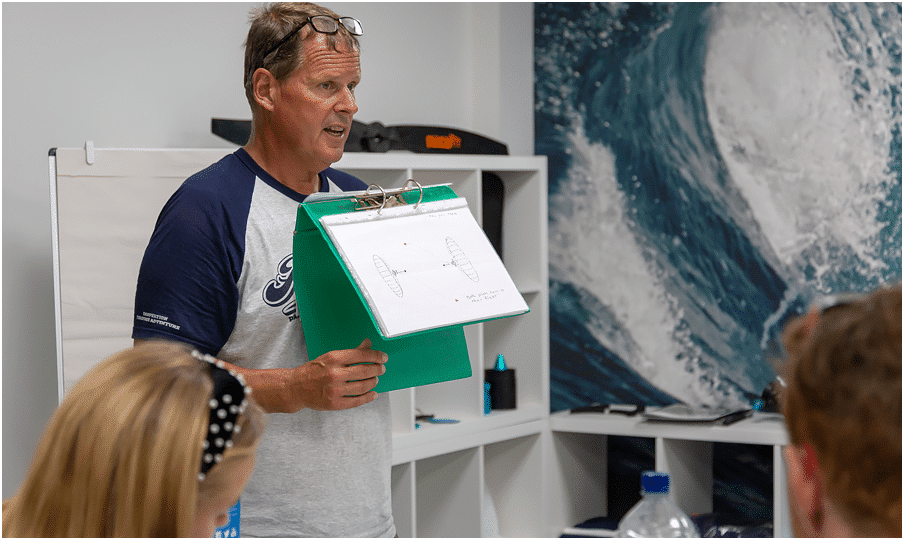
Knowledge makes you a better pilot and your course will give you a general understanding of some of the basic facts, concepts, scientific principles of flight as well as language relating to meteorology and weather forecasting. You’ll explore the laws and regulations that govern our sport with an introduction to airspace rules, aeronautical charts and navigational skills. Once you set out on your own, this knowledge is critical to your long term enjoyment of paramotoring, will help keep you safe and welcome in the national airspace system. Plus it helps expand into other areas such as flying with friends, cross-country adventures and, most importantly, maintaining your gear.
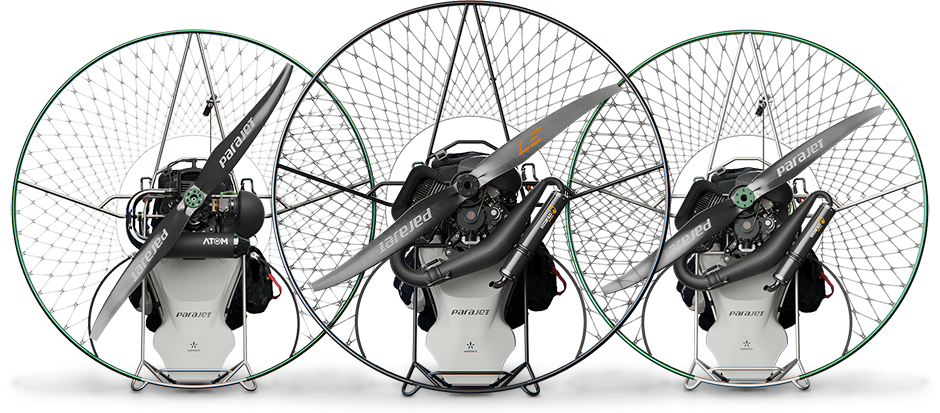
At Parajet, we’re pilot driven. We design paramotors and paramotoring gear to make your experience awesome, especially for first time and progressing pilots. We’ve done our homework over the last two decades and have developed products that aid you in your learning process, helping you progress quickly so you can be competent, confident and safe in your flying.
As leading experts in aerial adventure, Parajet aims to inspire and ignite your passion for personal freedom. To help facilitate your paramotor training and make the sky your playground. Our high-quality paramotors lead the way in design and innovation so that you can safely enjoy a lifetime of experiences that thrill and amaze.
© Copyright & ® ™ Trademarks Parajet International Ltd & Parajet Inc. All Rights Reserved.
© Copyright & ® ™ Trademarks Parajet International Ltd & Parajet Inc. All Rights Reserved.
Please enter your email address below and we will send you a notification email where you can retrieve your cart. Or close this pop-up to continue shopping.